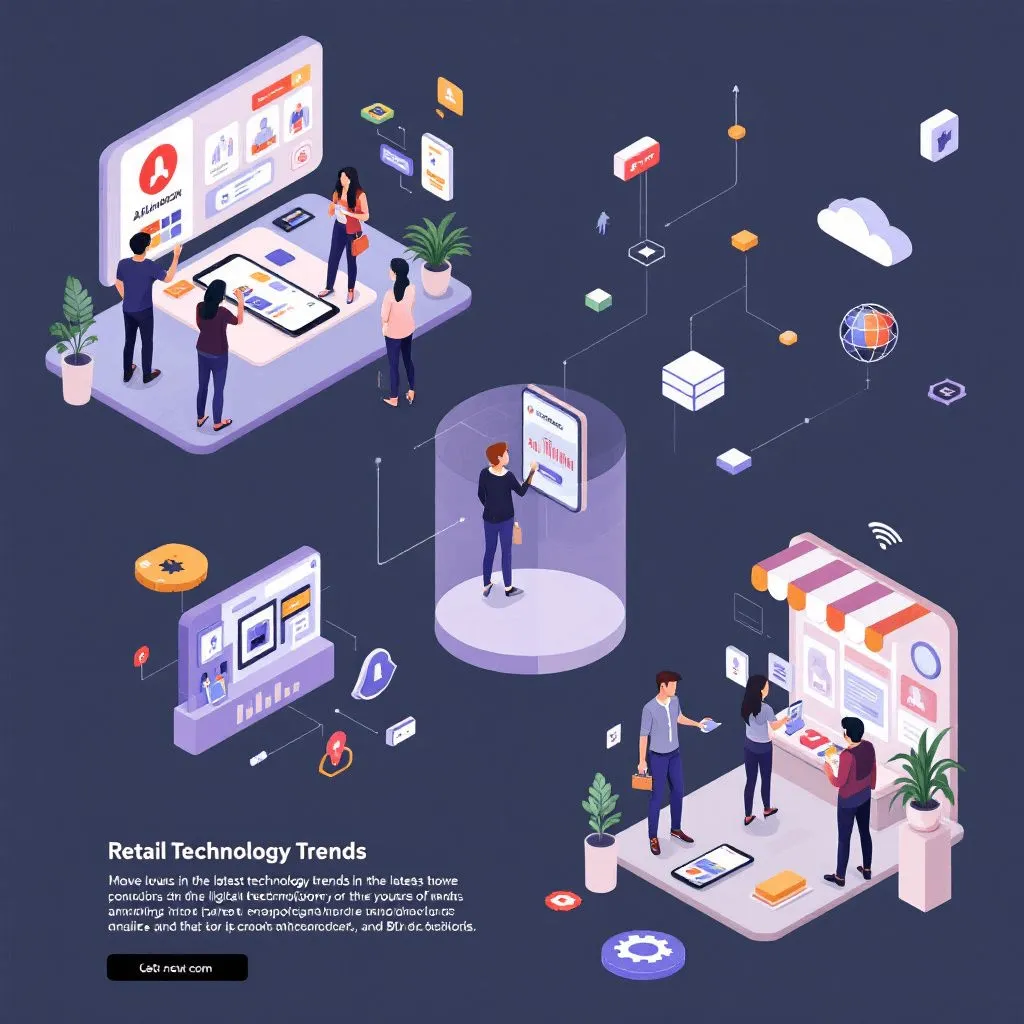Embracing Mobile Marketing in Retail
In the realm of retail technology trends, mobile marketing stands out as a pivotal force driving digital transformation. As consumers increasingly rely on their smartphones for shopping, retailers must adapt to meet these evolving demands. Mobile marketing not only enhances customer engagement but also provides valuable insights into consumer behavior, enabling personalized experiences.
With the rise of mobile-first strategies, retailers can integrate advanced features such as mobile wallets and seamless in-app purchases, streamlining the shopping process. This integration fosters loyalty and boosts conversions by offering customers intuitive and convenient shopping options. For instance, retailers using digital wallet solutions have seen a significant increase in repeat purchases and customer satisfaction.
Implementing effective mobile marketing strategies requires robust solutions that can scale with your business. JeriCommerce provides customizable mobile app development tailored to your specific needs, ensuring a seamless omni-channel experience for your customers. Additionally, integrating platforms like PaymentsJournal can enhance your mobile marketing efforts by offering secure and efficient payment options.
Moreover, leveraging analytics tools allows retailers to track user behavior and optimize marketing campaigns for better ROI. By understanding what drives customer actions, businesses can create targeted promotions that resonate with their audience, ultimately leading to higher engagement and sales.

Key Retail Technology Trends Shaping Mobile Marketing
In the current retail landscape, embracing the latest retail technology trends is essential for success. Mobile payments have surged in popularity, offering customers a seamless and secure checkout experience. Retailers are also incorporating augmented reality (AR) to enhance product visualization, allowing shoppers to interact with items before making a purchase. For example, AR can enable customers to virtually try on clothes or visualize furniture in their homes, bridging the gap between online and offline shopping.
Furthermore, artificial intelligence (AI) is being utilized to personalize marketing efforts, analyzing consumer behavior to deliver tailored promotions that increase engagement and drive sales. AI-powered chatbots and recommendation engines provide immediate assistance and product suggestions, enhancing the overall shopping experience.
Another significant trend is the integration of the Internet of Things (IoT) devices, which provide valuable data on customer preferences and inventory management. Smart shelves and connected devices can track stock levels in real-time, reducing the chances of overstocking or stockouts. Cloud-based platforms continue to gain traction, enabling retailers to scale operations efficiently while maintaining flexibility across various channels. Additionally, blockchain technology is being explored for its potential to enhance supply chain transparency and security, ensuring the authenticity of products from origin to consumer. These advancements not only improve operational efficiency but also enhance the overall customer experience.
According to Statista, mobile payments are set to grow exponentially in the coming years, further transforming the retail sector. By staying updated with these retail technology trends, businesses can leverage innovative solutions to meet evolving consumer demands and maintain a competitive edge in the market.
Moreover, the adoption of voice commerce and visual search is on the rise, allowing customers to search for products using voice commands or images, thereby simplifying the shopping process. These technologies align with the growing demand for faster and more intuitive shopping experiences.

Digital Wallets: Revolutionizing Retail Payments
Digital wallets are at the forefront of retail technology trends, transforming how consumers make payments. By offering a seamless and secure method for transactions, digital wallets enhance the shopping experience for both customers and retailers. Platforms like AcoWebs highlight the advantages of integrating digital wallets in e-commerce, including enhanced security, faster checkout, and improved customer engagement.
Integrating digital wallets into retail systems supports the digital transformation in retail industry. This integration allows for faster checkouts, reduces the need for physical cash, and provides valuable data insights into customer behavior. Retailers can track purchasing patterns and preferences, enabling them to tailor marketing efforts and inventory management accordingly.
Moreover, digital wallets facilitate loyalty program management by storing reward points and enabling easy access to promotions. Retailers can leverage these features to increase customer engagement and drive repeat business. For example, integrating with PaymentsJournal can enhance online checkout experiences, reducing friction and fraud risk.
As retailers adopt these advanced payment solutions, they not only improve operational efficiency but also meet the evolving expectations of tech-savvy consumers. Embracing digital wallets is a strategic move that aligns with the latest retail technology trends.
Explore how digital wallets can enhance your retail strategy by visiting our Shopify admin page.

Implementing Omnichannel Retail Solutions
In today's retail landscape, embracing an omnichannel retail solution is essential. These systems provide a unified customer experience across various platforms, aligning with the latest retail technology trends. By integrating online and offline channels, retailers can offer seamless shopping journeys, enhancing customer satisfaction and loyalty.
The benefits of omnichannel retail solutions are manifold:
- Better Inventory Management: Real-time data synchronization ensures accurate stock levels across all channels, reducing the chances of overstocking or stockouts.
- Personalized Marketing: Comprehensive customer insights allow businesses to tailor promotions based on individual preferences and behaviors.
- Enhanced Customer Experience: A consistent and cohesive shopping experience across all touchpoints increases customer satisfaction and fosters loyalty.
- Increased Sales: Providing multiple channels for customers to shop can lead to higher conversion rates and increased sales.
Implementing an omnichannel strategy involves several key steps. First, retailers must assess their current systems and identify areas for integration. Investing in robust software that supports multi-channel operations is crucial. Platforms like JeriCommerce offer comprehensive solutions that facilitate seamless integration across various channels.
Training staff to handle integrated platforms ensures smooth transitions and effective utilization of the new systems. Additionally, leveraging tools such as FinTech Magazine can provide valuable insights into best practices and emerging trends in omnichannel retail solutions.
For more insights on integrating digital solutions, visit this article.
Ready to enhance your retail operations? Explore JeriCommerce's solutions here.

Enhancing Customer Engagement through Technology
In the realm of retail technology trends, leveraging advanced tools is essential for boosting customer engagement. Personalization has become a cornerstone, allowing retailers to tailor experiences based on individual preferences and behaviors. By utilizing data analytics, businesses can anticipate customer needs and offer relevant products, thereby increasing satisfaction and loyalty.
Loyalty programs have evolved with technology, offering seamless integrations that reward customers for their continued patronage. Digital wallets and mobile apps make it easier for customers to access and use their rewards, enhancing convenience and engagement. These programs not only incentivize repeat purchases but also provide valuable insights into customer preferences and shopping habits. For example, integrating with AcoWebs allows retailers to offer multiple payment options, increasing customer trust and driving sales.
Integrating these technologies creates a cohesive and interactive shopping experience. For instance, real-time notifications and personalized offers keep customers informed and engaged, fostering a stronger connection between the brand and its audience. Additionally, feedback mechanisms enabled by technology allow retailers to continuously improve their services based on customer input.
To delve deeper into how digital wallets are transforming the retail landscape, visit this insightful article. For more information on how JeriCommerce can enhance your e-commerce platform, explore our Shopify app page.
Get Started with JeriCommerce Today!
Embracing retail technology trends is crucial for modern retailers aiming to enhance customer experiences and drive growth. By leveraging mobile marketing and advanced E-commerce solutions, businesses can offer personalized interactions and seamless shopping journeys. JeriCommerce empowers you to implement these trends effortlessly, ensuring your retail operations stay ahead of the curve. Don't miss out on the opportunity to transform your business—explore our tailored solutions today and take the next step towards retail excellence.








